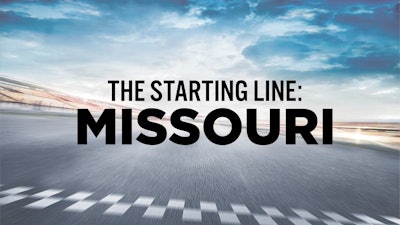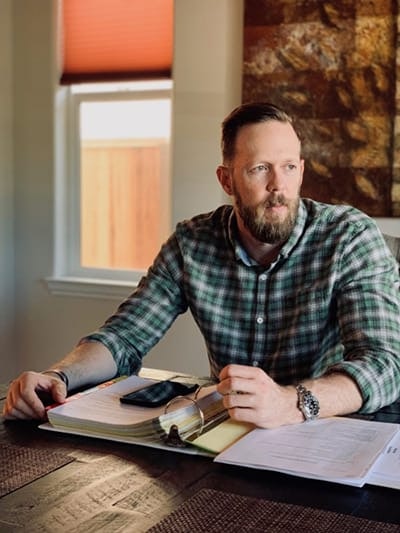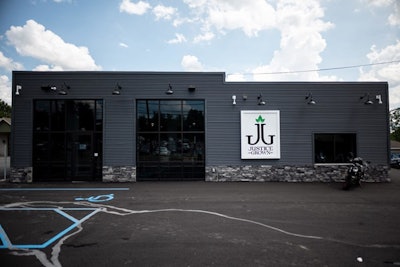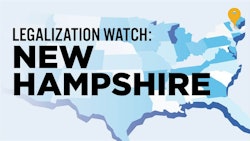
Late last month, multistate cannabis operator Justice Grown announced that it had secured a total of 11 licenses in Missouri’s forthcoming medical cannabis market, an accomplishment that CEO Darin Carpenter says will not only help connect the state’s rapidly growing patient base with the medicine they need, but also create a slew of new jobs for local Missourians.
The company, which holds licenses in California, Pennsylvania, Illinois, New Jersey, Massachusetts and Utah, will enter the Missouri market with three cultivation licenses, three manufacturing licenses and five dispensary licenses.
Here, Carpenter, who previously served as the director of operations for Tryke Companies/Reef Dispensary prior to that company’s acquisition by Cresco Labs, shares insight into Justice Grown’s background, the company’s plans for Missouri and his predictions for how market trends might unfold.
Cannabis Business Times: How did Justice Grown get started? Can you describe the company’s background and its journey to securing multiple licenses in Missouri’s medical cannabis market?

Darin Carpenter: Justice Grown has been around approximately four and a half years. Justice Grown started in Chicago, Ill., [and its] ownership consists of a couple attorneys who own a social equity law firm, [Loevy & Loevy, which is] focused on social injustices. In 2014 or 2015, there was the opportunity to enter the Illinois cannabis space. They decided to submit an application, and at the time, the application was molded around social equity. Through a merit-based application process, they scored extremely high in the Illinois licensing process and were awarded a license in Illinois.
That’s how everything started, and as more states reformed their cannabis policies, Jon Loevy and Mike [Kanovitz] decided to try applying in some of these other states where there are limited licenses and the application process is based on merit. They’ve become extremely successful at the application process as one of the core competencies of the business itself.
So, that’s how it started, and we’ve had this trajectory of rapid growth over the space of the past four years. Facilities are in various confirmations of operability, are being built or [have been] recently awarded licenses in each state. Missouri is the latest state that we were awarded licenses [in], and we’re very excited and happy to be part of the Missouri cannabis industry.
CBT: What aspects of Missouri’s market and your operations there are you most excited about?
DC: We are very fortunate to have secured a vertical set of licenses. What excites us is being able to of course bring our experience and expertise to a new burgeoning market, but we’re also excited to ensure that we stay true to our core values and produce safe, clean products for local Missourians. We are also very fortunate, proud and excited to work with our local partners, all of which are native Missourians who have impacted the state, either regionally or across the state as a whole, in a positive and ethical manner. We think we have a great foundation there to springboard off of and bring our expertise and product pipeline to the market.
CBT: What has been particularly challenging for the company as it enters Missouri’s market, and how have these challenges been overcome?
DC: I guess one of the biggest concerns—and I think this is a concern for every operator in the space—is having a product pipeline that we can provide to the patient base. We’re seeing the patient population is growing rapidly since the state has come online, so a pain point would be ensuring that we rapidly build our facilities and start producing a high-quality, safe product for the patient base that’s expecting a product pipeline in short order.
There’s no expected date [for sales to launch]. We’re going to be moving as rapidly as possible. We have all of our properties lined up and ready to go. We need to design and build and onboard the staff to support the industry. If we’re moving quickly, a realistic date is eight to nine months from now to have some semblance of a dispensary, barring any sort of issues with the planning board or commission or any sort of design or construction roadblocks we may have down the line. Then, shortly thereafter, cultivation, and shortly thereafter, manufacturing processes. We’re not committing to a date today, but we are very committed to the state and we’re very committed to designing, building and launching each facility as quickly as possible.
CBT: What are some of the immediate next steps for the company as it works to become operational in Missouri?
DC: With our licensed footprint, we expect to hire several hundred employees across the state. Things that we plan on doing during the hiring process are job fairs and educational symposiums that let those that are interested in Justice Grown or maybe the industry as a whole have access to us and have a place to communicate with the local team and some of the management, and submit a resume to apply for a position within the organization.
CBT: How does Missouri’s nascent medical cannabis market compare to Utah’s, where the company also holds licenses?
DC: Utah is slightly behind Missouri in patient count, [and] the Utah market is still being developed. The state’s doing a great job. We met with them two weeks ago. They’re looking at ways to bolster the education and the ability for those interested in becoming a patient to have access to cannabis.
In terms of each state’s regulatory framework, Utah has a much smaller list of qualifying conditions for one to garner access to cannabis. They require, at the dispensaries, for a pharmacist to be on staff. You cannot smoke flower. You cannot combust flower. You can’t have traditional edibles and gummies—you can only have a gelatinous cube. If someone preferred to not smoke and ingest THC and CBD through other mechanisms, the way products are sold, there’s some significant differences there. Most products are sold in single-dose increments.
All indication from the state is that they’re going to work with the industry as they gain their own knowledge and understanding of how the industry works and how patients can best consume cannabis and the best ways to provide access and how to bolster the program, whereas Missouri seems to have a well thought-out strategy that’s a bit more traditional to some of the other regions that have launched—[it has] a more significant list of qualifying conditions [and] more product pipelines are allowed in the state of Missouri. There are some pretty significant differences, but as an organization, we’re very honored to be a part of both of these states’ cannabis programs.

CBT: How does the company determine which markets it wants to enter? What is desirable in a cannabis market?
DC: There are many facets that go into how we approach certain markets. This is not dissimilar to other cannabis companies, but we do like limited license states. Our licensing, application and business development team does a great job with our business plan on a social equity front, which is what most of these new states coming online require. That gives us somewhat of an advantage entering these markets, but it really comes down to limited license, patient count and our ability to execute effectively in these marketplaces and identify strong local partners where we each mutually benefit.
CBT: What are some of the company’s longer-term goals in Missouri?
DC: We’d obviously like to be a staple in the Missouri market. We have partners who are well-known within the space, known for operating successful, ethical businesses that many Missourians know. Our long-term goal is to obviously do the industry right and provide a high-quality and safe product to the local Missourian patient base. It’s all about quality, it’s all about safe access, it’s all about inclusivity. We want everybody to have access to the product, which ties back to our foundational principles.
CBT: What market trends do you expect to see as Missouri’s medical cannabis market gets up and running?
DC: In many new markets, traditional products seem to sell best. While we have a vertical license and we plan on launching a full product pipeline, market trends in emerging markets are typically things like flower products and more traditional product consumption—vapes and concentrates and basic edibles. Our plan is to have moderately dosed edibles and products with varied ratios of THC, CBD and other certain cannabinoids to provide certain effects. While we’re going to lead with some of the more traditional products since that’s what always sells in an emerging market, we’re going to have these other products in the pipeline and develop further as we gain some penetration with those products.
Editor’s Note: This interview has been edited for style, length and clarity.























